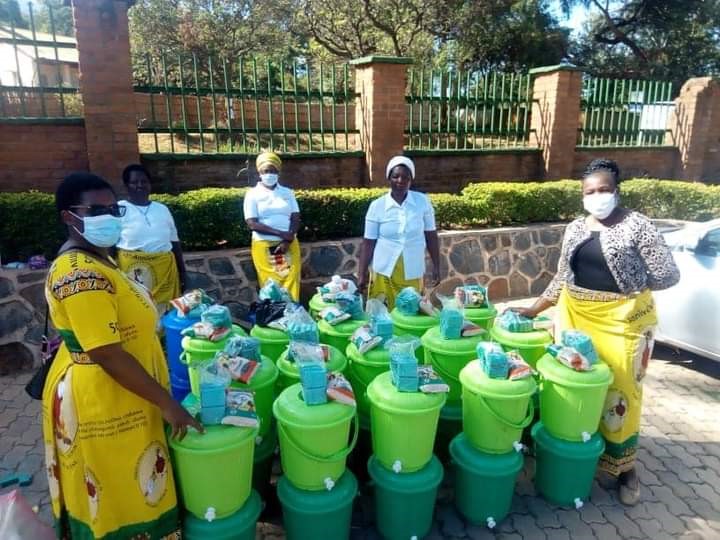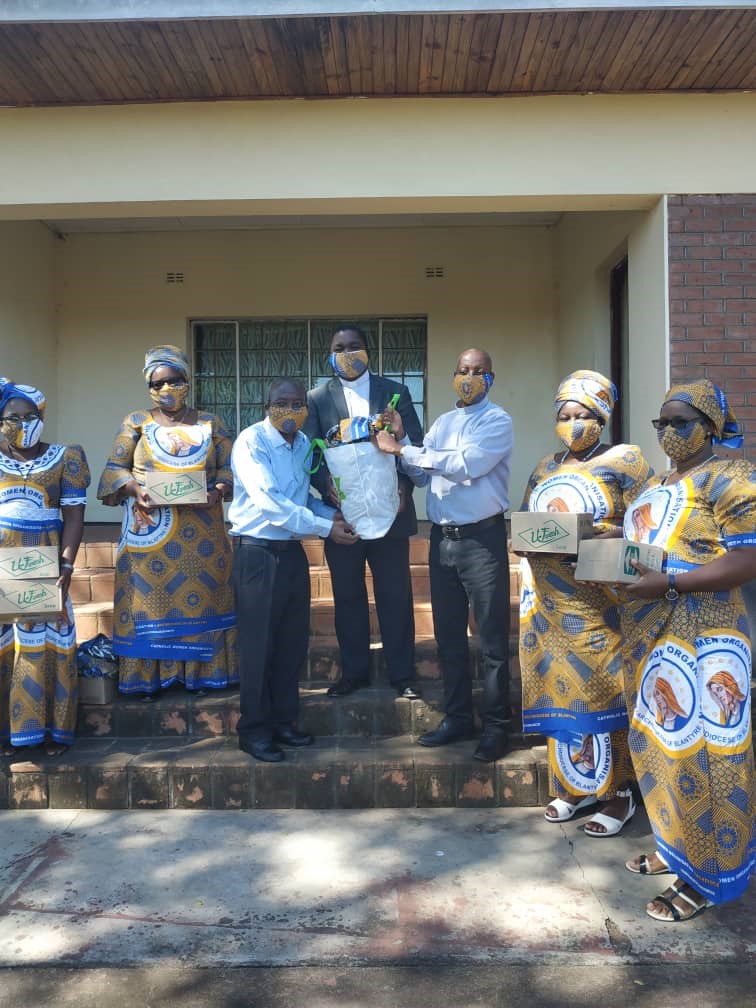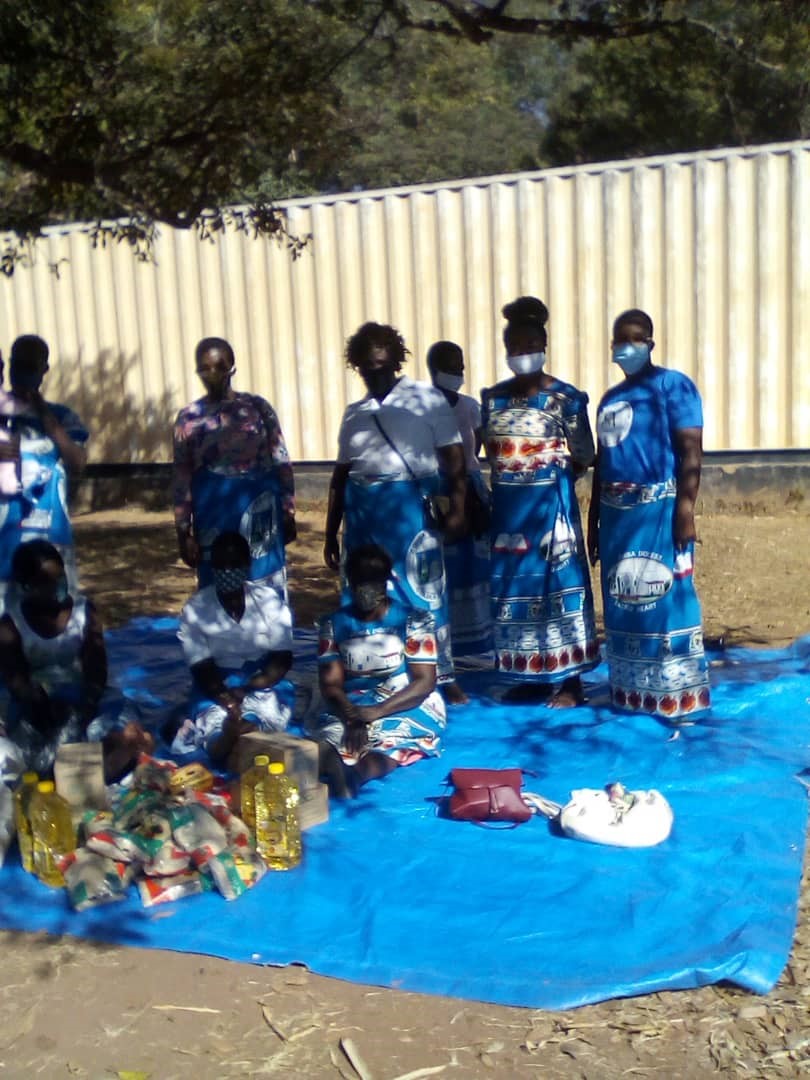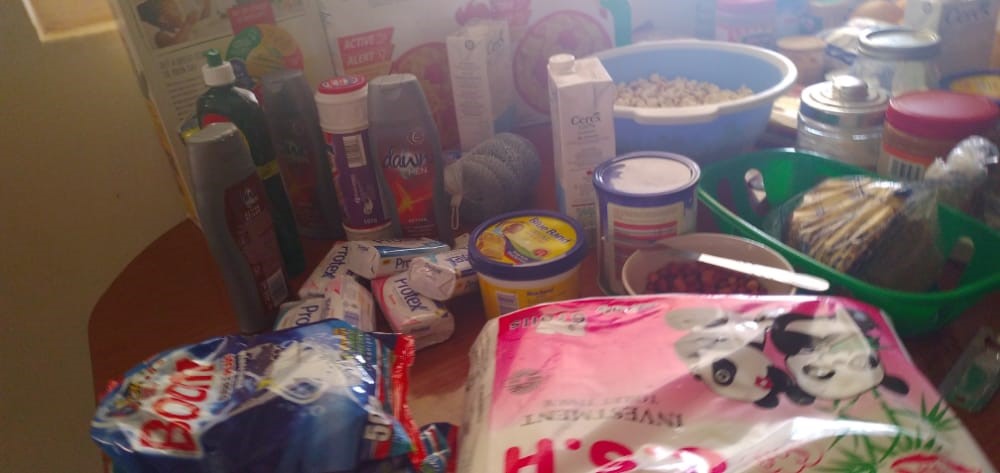 Identified in December, 2019, a local outbreak of respiratory infections in Wuhan, China had culminated into a global pandemic(Covid-19) as declared by World Health Organization (WHO) affecting the whole world. Ever since, the world has experienced a rapid growth of new cases, deaths and recoveries each day. Countries all over the world have activated emergency plans, guidelines and measures as to how best they could handle the disease, restricting its further spread and transmission. For instance, awareness interventions on wearing masks, social distancing, travel restrictions, home confinement among others.
Identified in December, 2019, a local outbreak of respiratory infections in Wuhan, China had culminated into a global pandemic(Covid-19) as declared by World Health Organization (WHO) affecting the whole world. Ever since, the world has experienced a rapid growth of new cases, deaths and recoveries each day. Countries all over the world have activated emergency plans, guidelines and measures as to how best they could handle the disease, restricting its further spread and transmission. For instance, awareness interventions on wearing masks, social distancing, travel restrictions, home confinement among others.
While our attention has been much focused to the increasing cases, but this marvel and its consequences are certainly not limited to medical disease. Effects of corona disease vary from an individual to a family, to a community, to the church but also the whole world. As one family living in our common home, we all have been hit by the unexpected effects of the pandemic. The pandemic has changed how we live, how we work and communicate, how we move around and travel. From physical communal lives, (both social, formal and spiritual), our lives have been moved to digital communication and interaction. From zooming clients and colleagues in the work place to neighborhood WhatsApp groups; digital platforms have become the only way for many of us to work, get fit, be educated, gather in prayer with the rest of believers and entertainment.
Disregarding the facts that the virus has restricted our mobility, the confinement imposed has strengthened and improved family relationships, where parents have enough time to spend with their kids but also their spouses, eat together, have fun together and most importantly pray together.
The pandemic has prompted most of us to become more creative in relation to time. We are developing various other means to cope with different times that the pandemic is exposing to us, for instance the closure of church services earlier has led us to becoming more innovative as we seek for other effective means to connect with the rest of the church elsewhere. Attending church services online, accessing prayers but also sharing our faith with other women digitally. However, the inconsistency in closing and re-opening of churches has affected the membership of the church but also continuation of church activities and projects. As a church we are not certain of what will come next. It is therefore difficult to resume to our normal physical activities hence a number of them have been suspended until to when everything will return to its consistent state. For instance, as WUCWO women of Malawi, we have suspended the diocesan conferences that we conduct in each diocese every year and are not cleared if we will be able to conduct the Annual General Meeting (AGM). This has negatively affected our development and progress.
Recalling the monthly letter sent by the WUCWO President in May, we have been called to take the example of Mary the mother of Jesus as our model of a resilient woman in the time of crisis. In the context of this global pandemic, Mary, our model has given us the courage to continue taking up the path to holiness through our various responsibilities and roles as WUCWO women. Our mother, has taught us to remain excellent in doing our work of evangelization even in this time of such pandemic. Taking up the challenge, as Catholic women in Malawi, we have assumed various interventions in helping the church, the government and the rest of the world fighting against the further spread of the disease. The following are some of the activities that WUCWO women in Malawi have implemented;
Radio Programmes
This time of confinement imposed by the pandemic, women cannot go to church and most of the activities are suspended because of the restrictions on public gatherings. The Holy Father continues to urge the local Church to discern on new paths of doing missionary work. As WUCWO women, we have introduced radio programs to continue nourishing and enlightening our women with messages of faith, hope and love. The programs were developed on radio Maria where we share about our organization but also our relationship with WUCWO every month.
Advocating for care of the most vulnerable groups around us
In this time of the pandemic, it is the best time to protect, support and show love to the most vulnerable groups in our families, communities, church and surroundings. Catholic women in Malawi are advocating for the care of such people in the society for instance; the elderly, people with disabilities and children. As women, it is our responsibility to care for these people in our families making sure that they are safe all the time but also they have enough and necessary equipments to protect them from the disease. During the World sick day, WUCWO women in Malawi prayed for and visited the sick in the hospitals. We donated various items in support of the sick persons such as food items. We have sensitized families to take care of the elderly with love. We also wrote a press release on the killings of albinos condemning the evil act.
Sending messages of love, hope and light to those in self-isolation and quarantine
As WUCWO women, we are also encouraging our fellow women to pray for those that have been infected by the disease. The patients who are in self-isolation centres and the people who have been quarantined. These people might have lost their faith in this time of crisis and may be going through mental health illness. As a light, we are being encouraged to spend time in prayer for them, perhaps send through messages of love, hope and light reminding them that they are still a part of us and they are not alone.
Awareness Raising Campaigns
Educating others about the disease is key to minimizing the continual spread of the disease. Using various platforms, we continue to educate our fellow women and our communities about the covid-19 disease. These include what the disease is about, signs and symptoms, preventive measures of social distancing, wearing masks, washing hands or using hand sanitizers. We have developed posters carrying educative messages about the disease which we have only managed to share electronically when most of our women are not on electronic platform. This is a big challenge because most of the important messages being shared electronically are not able to reach out to the majority of our women. Our desire is to reach out to a larger population in communities, parishes and public places that have minimal access to information on the disease.
Donation of Various Food Stuffs
As a way of showing support and love during the pandemic, the Catholic women sent various donations to assist priests, sisters and those in need in their dioceses. Dioceses such as Lilongwe, Blantyre, Karonga and Zomba assisted diocesan priests with various assorted items such as soap, food stuffs, sugar, fruits, potatoes, hand washing facilities among others.
Attending a Meeting on the propagation of faith in preparation of Mission Month
We also attended a meeting organized by the Pontifical Mission Societies (PMS) in preparation of the mission month. Among other issues shared during the meeting were self-propagating church where as lay faithfuls, we are encouraged to pray and share the word of God in our homes, small Christian communities, villages, outstations, zones, parishes.
The self-ministering church. This is where local ordained ministers; priests, brothers, sisters and the general leadership of parishes, small Christian communities and catholic institutions proclaim the word indigenously showing the growth and maturity of the church; where parents direct their kids into various vocations in the church.
And lastly the self-reliant church where resources can be obtained from the faithful community within for building the kingdom of God in areas as constructing cathedral and churches, taking care of church ministers such as priests, catechists and the religious, supporting parishes/institutional support, buying items for liturgy, sustaining social services of the church such as education, health, justice and peace, industries and other developments, providing teaching materials for teaching/formation offices of the church.
Spiritual Lessons learned amidst the Pandemic
Living in this pandemic has narrowed down our thoughts to how we have been affected as spiritual beings. With the closure of churches, most people have gone hopeless, however, we have been called to personal prayer, spending personal time with God, seeking forgiveness and hope from God each day, praying with our families using the liturgy and other resources that the church has provided. Various platforms have been created on social media pages where the word of God is being shared each and every day. This has helped people to get spiritual enrichment right from their homes and the word is being shared to a wider audience as these people continue to share the word with others. The pandemic has helped us appreciate fellowship with fellow believers, it has cultivated a personal spiritual life and relationship with God, it has driven us to reflect that we are empty without prayer.
It has made us to share our compassions, fears and hope encouraged one belief, the belief that we are left with nothing but our faith in God to relieve us from this pandemic.
How do we improve our economies to live with Dignity?
The pandemic has endangered our economic status. Enforced lockdown in several countries, closure of some work institutions and suspension of several businesses has left many especially women in economic uncertainties. Women have been highly affected economically especially those that act as the heads of their families, children have been forced into marriages because their parents cannot afford to offer basic needs. To improve our economies, women and other vulnerable groups should be helped to introduce small scale businesses that can enable them to provide for their basic needs. Training in income generating skills such as making reusable masks using available resources, processing covid-19 remedies, poultry and growing vegetables among others. In addition to this, the government in Malawi has also introduced cash transfers that will be distributed among vulnerable women, girls and children to improve their economic status.
Care for Our Common Home during the Pandemic
Whether we are in crisis or not, we still have a responsibility and ability as humanity to build and care for our common home. The Holy Father seeks to help humanity acknowledge appeal, immensity and urgency of the challenge we face. Despite the deep challenges caused by covid-19, we are reminded of the importance of God’s creation. We are called to respect nature; animals, plants and all living things. We have a responsibility to care for our fellow human beings from our families, refugees, street children and other vulnerable people realizing the dignity of every person. Furthermore, we need to continue raising awareness on deforestation and degradation. Cutting down of trees and poor land management has brought global warming as a result we experience tsunamis and flash floods.
In conclusion, Corona time has imposed us to different fears and moments of our lives. We have learned to inhabit new ways of living and doing things and most of our experiences are shared worldwide. Despite all these fear, it is time to think ahead on how best we can live with the pandemic and how our lives will look like after the pandemic. Our experience of corona has given us a training in temporal thought and flexibility. Perhaps, if we are to face a different pandemic/crisis in the future, it is comforting that we will be able to plan ahead even when we are stuck in the present. May Mary our mother continue sharing with us WUCWO women her resilience and pray for us through her son our Lord Jesus Christ as we face the pandemic with hope, faith and prayer.
Pictures showing WUCWO women in Malawi donating various items to assist priests and sisters in the time of the pandemic



 Activities
Activities  Regional News
Regional News  Africa
Africa  Regional News
Regional News  SET FORTH AS A LIGHT TO A WORLD IN DARKNESS - CWO Malawi, Catherine Nyangulu
SET FORTH AS A LIGHT TO A WORLD IN DARKNESS - CWO Malawi, Catherine Nyangulu Activities
Activities  Regional News
Regional News  Africa
Africa  Regional News
Regional News  SET FORTH AS A LIGHT TO A WORLD IN DARKNESS - CWO Malawi, Catherine Nyangulu
SET FORTH AS A LIGHT TO A WORLD IN DARKNESS - CWO Malawi, Catherine Nyangulu Identified in December, 2019, a local outbreak of respiratory infections in Wuhan, China had culminated into a global pandemic(Covid-19) as declared by World Health Organization (WHO) affecting the whole world. Ever since, the world has experienced a rapid growth of new cases, deaths and recoveries each day. Countries all over the world have activated emergency plans, guidelines and measures as to how best they could handle the disease, restricting its further spread and transmission. For instance, awareness interventions on wearing masks, social distancing, travel restrictions, home confinement among others.
Identified in December, 2019, a local outbreak of respiratory infections in Wuhan, China had culminated into a global pandemic(Covid-19) as declared by World Health Organization (WHO) affecting the whole world. Ever since, the world has experienced a rapid growth of new cases, deaths and recoveries each day. Countries all over the world have activated emergency plans, guidelines and measures as to how best they could handle the disease, restricting its further spread and transmission. For instance, awareness interventions on wearing masks, social distancing, travel restrictions, home confinement among others. 

